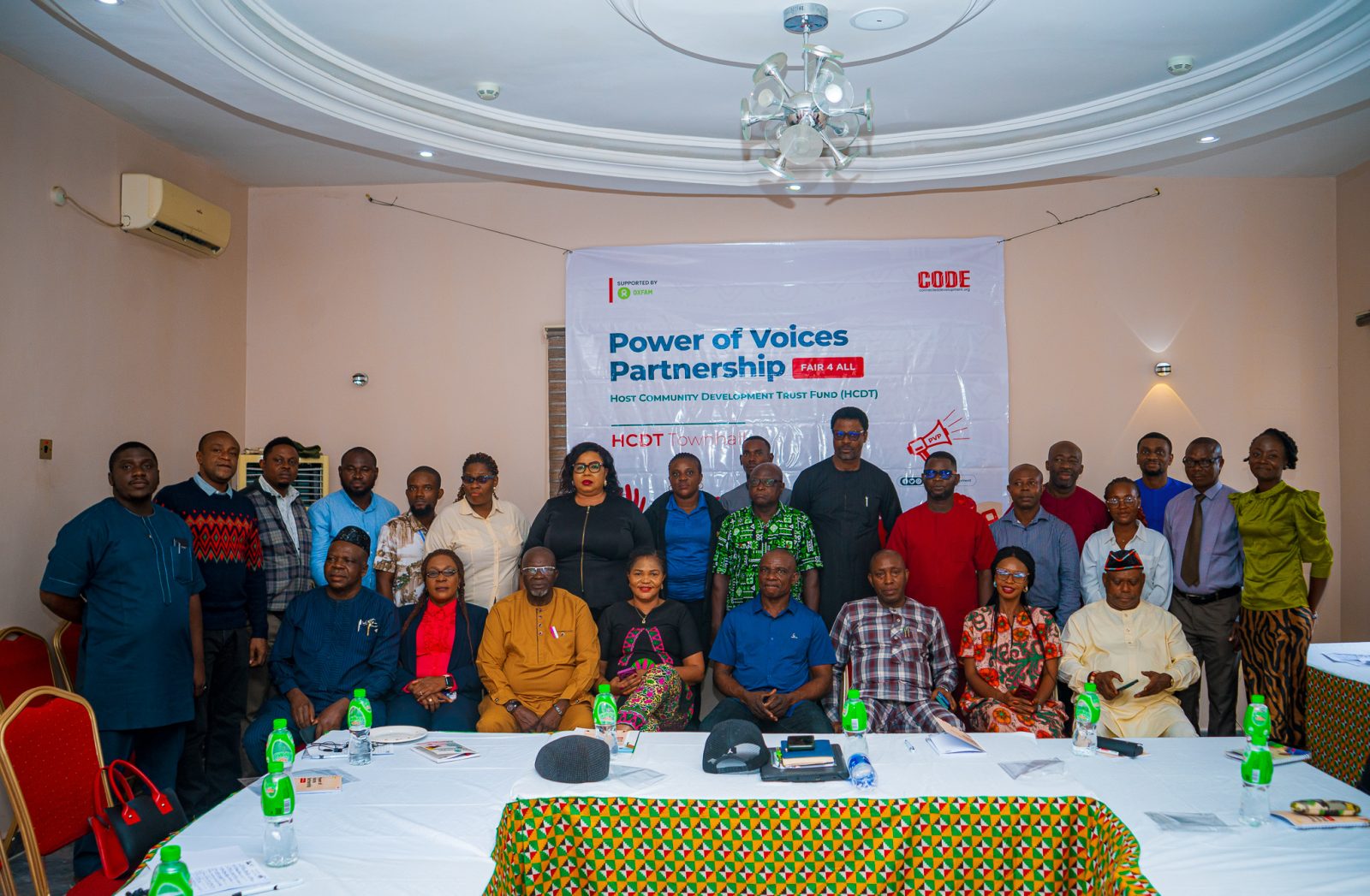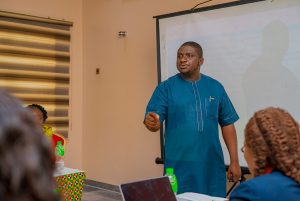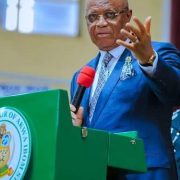Empowering Host Communities: CODE Trains HCDT Members in Akwa Ibom for Effective Project Management

By Ekemini Simon
Connected Development (CODE), a non-governmental organization whose mission is to improve access to information and empower African grassroots communities has held a capacity building workshop for Host Community Development Trusts in Akwa Ibom State in order to enhance their capacity towards safeguarding community rights in project implementation and fund management.
The capacity building implemented under the Power of Voices Project which held on Wednesday in Uyo had members of Board of Trustees, Management Communities and representative of the Settlor within all the HCDTs established in the State trained on how to address persistent challenges concerning the functionality, compliance, and service delivery of HCDTs.
According to the Communication Officer of Connected Development, Msen Nabo, CODE through a HCDT peer-learning research had observed that although the Petroleum Industry Act provides a solid legal framework, its implementation is hampered by weak enforcement, local political manipulation, and a noticeable lack of transparency and capacity among key actors.
She said with the observable gaps, CODE has seen the need to use the workshop to strengthen the HCDT’s governance structure and formalize more transparent and inclusive operations which would significantly bolster the HCDT framework and unlock further opportunities for sustainable project investments.

In her presentation on ” Amplifying Community Voices: The Role of Digital Media and Radio in HCDTs Advocacy “, the Communication Officer identified why the media matters in advocacy for impact. She highlighted the benefits to include wide reach and low cost, instant updates and feedback loops, helps mobilize youth and allies, and enables transparency through digital storytelling.
While charging HCDTs to use the media in promoting transparency on the goings within the trust, Nabo pointed out that many organisations would be willingly providing support to Trusts if they use the social media well to highlight their effort and challenges limiting each Trust.
Providing tips for effective use of the media, the Communication Officer recommended the use of storytelling, not jargon, leveraging influencers and community champions, translating materials into local languages and documentation and sharing success stories consistently.
In his presentation on Joint Community Action Plan towards Enhanced HCDT Operations”, the Programs Officer of Connected Development, Dr. Abdulazeez Hussaini charged each Trust not to perpetuate in blame game but begin to take actions through advocacy in addressing the challenges they have identified.

He recommended the Joint Community Action Plan (JCAP) otherwise known as the Community Scorecard approach.
Hussaini who said the approach is a two-way and ongoing participatory tool for assessment, planning, monitoring and evaluation of services described it as a social accountability process and conflict management and alternative dispute resolution tool and data tool.
He highlighted the five phases required to be taken for solutions to include; planning and preparation, issues identification with community A, issues identification with community B, interface meeting and follow up (action planning implementation and monitoring and evaluation.
In a side chat after the event, a Member of the Board of Trustees of Efiat and Mbo Host Community Development Trust of Oriental Energy, Alice Joe thanked Connected Development for the capacity building. She said the Trust she belongs to has a challenge of transparency. Joe noted that with the skills gathered at the workshop, she is equipped to strategically engage relevant stakeholders for a positive change.
On his part, Elder Cyril Akpan of Ibeno Host Community Development Trust, powered by Seplat Energy Joint Venture with NNPCL said the specific action points for they have taken from the capacity building sessions is the strategies they will deploy in advocating to resolve issues that they may face during implementations within the Trust.
He added “With the discussion and interactions, it has been a worthwhile meeting. I count us lucky to have CODE facilitate this meeting. There has been cross pollination of ideas. We will go back to our various HCDTs and begin to make some progress.”
The Power of Voices Partnership (PVP) is a project implemented by Connected Development [CODE] and OXFAM in six Nigerian states, including Akwa Ibom, to address the socio-economic impact of the extractive industry. The project focuses on building capacity and raising awareness about the need for improved governance, transparency, and accountability in the management of natural resources, particularly oil and gas.







